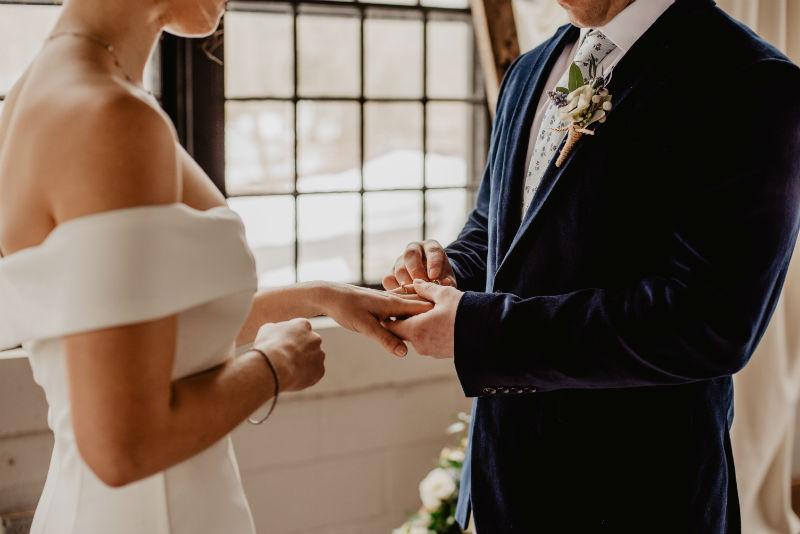
Getting married and falling in love come with their own set of challenges. However, you could argue that is the easy part. It’s not getting married that’s difficult; it’s sticking with your spouse. Dealing with financial difficulties, having children, personal issues, and working more hours can weigh heavily on relationships. To solve marriage problems, communication is essential. Marriage counseling is among the most effective ways to reach mutual understandings, strengthen communication skills and resolve your issues as a couple or respectfully dissolve your marriage.
The most prevalent marital problems
Communication problems are the most common issues that couples face nowadays. However, the issues can contribute to or reflect the various challenges teams bring into marriage counseling. The issues include:
• Trust issues, cheating, different goals in life, childlessness, sex problems, emotional detachment, etc.
Your counselor’s job is to help you and your partner solve and get to the bottom of these problems.

Who Should Get Help for Their Marriage?
Marriage counseling is generally associated with a negative aspect. Most folks believe that couples only undergo counseling when they are on the verge of splitting up or divorcing. However, the reality is that every marriage has its challenges. Marriage counseling is something that almost all couples could use at some point. The term marriage counseling implies that you must be married to seek it. However, this is not the case. It doesn’t matter if you and your partner are in a committed relationship. All couples, gay, straight, or otherwise, can benefit from marital counseling. It includes married couples who don’t live together, open marriages, and long-distance couples. When it comes to marriage counseling, there are no boundaries. Findyourtherapy and get help with any problem that you don’t feel like you can manage or that could benefit from a neutral, unbiased, skilled perspective.

What takes place in a marriage counseling session?
The majority of marriage counselors recommend that both couples attend sessions. To give you both the skills you need for better communication, the counselor will observe how you interact as a couple and then offer suggestions on making it better. You can attend the sessions on your own if your partner is unwilling or unable to participate. Even if you don’t get anything out of it, you can still gain insight into your thoughts and feelings regarding the relationship. Marriage counseling involves a lot of emotions, and the experience is not easy. You and your spouse can talk about things that might be too painful to bring up in your regular conversation in the session. There will undoubtedly be tears and heated voices during a marriage counseling session, which is normal and understandable. Therapists seek to create an environment where couples feel validated and can talk freely and leave with guidance for improving communication and strategies for dealing with future issues. Couples that seek out marriage therapy have a specific issue they’d like to address. Thus, sessions tend to be brief.
How to Begin Counseling as a Couple
For marriage counseling to be successful, you must be willing to participate as a couple. Most marriage counselors will accept to talk to you separately if your partner is hesitant. As a result, each person can express their feeling without fear of condemnation from their spouse. Also, you can encourage your partner to come along by suggesting a trial session and then decide whether to continue or not.
It’s critical to be open and honest with your partner about your intentions. Avoid blaming your spouse and instead say you love them and want to improve the relationship. Most people believe that marriage counseling is only for mending broken relationships. However, counseling can also work as a preventative strategy. Professional marriage counseling can be a lifesaver for long-term marital stability.
What doesn’t take place in a session?
Marriage counselors are only present in the sessions to offer you new forms of communication, but they will not solve your problems or give you advice. Also, counselors are not allowed to take sides. Instead, they will offer suggestions and methods to strengthen your connection with your partner and work on your marriage. It’s also essential to note that counseling is inappropriate in violent situations. If your therapist identifies an abuse pattern, they will support you in receiving the required assistance with your safety as the number one priority.
Is marriage counselling effective?
There are encouraging statistics regarding marriage counselling. However, even though therapists will guide you, the decision is ultimately yours. You have complete control over your life outside and inside the counselling office. In navigating the complexities of marriage, some couples may find that incorporating a lie detector test into their journey could serve as a tool for fostering trust and open communication. While unconventional, it can offer a unique opportunity to address any lingering doubts or concerns, creating a foundation of honesty from the beginning. By willingly engaging in this process, the couple demonstrates a commitment to transparency and a shared understanding that building trust is a vital aspect of a solid and enduring marriage. However, both partners must approach the idea with sensitivity and open-mindedness, acknowledging that the test is a means to strengthen their bond rather than a reflection of mistrust.
Marriage, like every other relationship, needs effort and upkeep. Marriage counseling can be a lifesaver for many couples struggling to overcome their differences. Even though marriage therapy isn’t always fun, it’s worth it in the long run. And what matters most is that your therapist is someone both of you can rely on, has a positive outlook, and treats you with kindness.
































